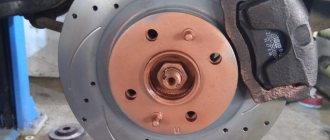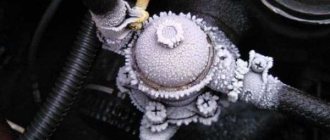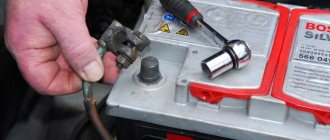Jaw clenching in sleep: why does it occur and what to do about it?
A person may not realize what is interfering with his sound sleep until he learns from loved ones that teeth grinding can be heard at night. This is a fairly common problem, affecting 15-20% of the population, but most people are not even aware of it or do not pay attention to it until they are faced with the consequences. Why does a person clench his teeth tightly in his sleep and is it necessary to do something about it?
Reason #1: Stress
Scientists from the University of Dusseldorf conducted a study involving 48 subjects and proved that the main cause of bruxism is stress. In sleep, the body rests, cleanses itself and gets rid of unnecessary information, and clenching the jaw, a person continues to experience the troubles of the day at night. Constant nervous tension is a sure way to the development of this disorder.
INTERESTING FACTS!
- Representatives of the following professions are most susceptible to stress: surgeon, photojournalist, passenger plane pilot, realtor, manager.
- Dark chocolate, laughter and... good deeds help reduce stress hormones. The famous scientist Allan Lukes claims that after sincere, selfless help to strangers, a person experiences happiness and satisfaction. The body produces endorphins, it relaxes and gets rid of stress. This is also confirmed by a 30-year study that showed that women who cared about other people, and not just their family, were 2 times less likely to get sick and enjoyed life more.
Bad habits
The occurrence of bruxism can be triggered by lifestyle. The following have a negative impact:
- nicotine addiction;
- drinking alcohol in large quantities;
- exceeding the daily caffeine intake;
- taking antidepressants.
Congenital anomalies
The reason may also be hidden in defects of the facial skeleton, for example, in the incorrect structure of the joints that connect the temporal bone and the lower jaw.
Neurology
Disturbances in the functioning of the nervous system provoke various sleep-related disorders, which are often accompanied by grinding teeth - apnea, somnambulism, nightmares, enuresis. Trismus and bruxism are also signs of damage to the trigeminal nerve, which causes tone of the masticatory muscles.
Various problems in the oral cavity can also lead to the development of bruxism:
- malocclusion;
- loss of some teeth;
- braces;
- dentures, veneers;
- poorly placed fillings.
Theory about helminths
There is an opinion that the main cause of teeth grinding is helminths. There is no scientific evidence for this theory. But it is known that the body infected with parasites suffers from a lack of vitamin B12.
Because of this, the brain does not receive enough oxygen, sleep disturbances, and involuntary contractions of the masticatory muscles occur. Therefore, this reason cannot be excluded either.
It will always be appropriate to check whether the body is suffering from helminths.
Symptoms
Teeth grinding at night is the first and surest sign of bruxism. But it is almost impossible to find out about it without outside help.
To independently identify the disease, you should pay attention to the condition of the enamel, to the presence of an increased reaction to sweets, hot or cold.
New holes, chips, or dentures may have become damaged for no apparent reason. All this is indirect evidence of the development of a movement disorder.
There are a number of additional signs that may indicate the manifestation of night bruxism:
- throbbing pain in temples in the morning;
- dizziness and ringing in the ears;
- soreness of the jaw muscles;
- constant feeling of fatigue, drowsiness;
- discomfort in the sinuses;
- restless sleep and frequent awakenings.
Treatment of bruxism
First, you need to identify the nature of bruxism, determine whether the problem relates to the dental field or has psychological causes.
Based on the results, it is necessary to contact the right specialist as soon as possible to avoid serious consequences. Your doctor will tell you what to do first and how to get rid of the problem.
The most common measures used in treatment:
- A complete dental examination and elimination of all problems in the oral cavity, including correction of malocclusion.
- The use of special mouthguards made individually according to the size of the patient’s jaw. With their help, teeth are protected from injury, but they cannot completely get rid of the problem.
- Injections of a minimal amount of Botox. It prevents the jaws from clenching tightly, partially paralyzing the muscles of the mouth.
- Apply soothing warm compresses before bed.
- Taking medications and vitamin-mineral complexes, including magnesium, calcium, B vitamins.
- Minimizing stressful situations, allocating time during the day for rest and walks.
- Limit heavy food intake in the evening. This will promote muscle relaxation and healthy sleep.
If a serious pathology of the jaw is detected, surgical intervention, such as plastic surgery of the articular disc, or the use of laser therapy is possible.
Exercises and self-massage will help in the treatment of bruxism:
- Squeezing your jaw with your palms below on both sides, you need to press lightly with your fingers, massaging it in a circular motion. It is advisable to repeat such manipulations, which help relieve tension from the problem area, every day for at least 2-3 minutes.
- Chin muscle training. With your mouth slightly open, you need to push your jaw back with your fingers. The procedure is repeated several times during the day, at least 10 times in 1 approach.
- Chewing gum exercise. You need to roll the chewing gum balls from one corner of your mouth to the other. It is better to do this before going to bed, until you feel tired in your muscles, then the likelihood that your jaw will be clenched tightly in your sleep will sharply decrease.
A person simply does not notice most habits in himself, but he is often angry at similar manifestations in other people.
One of these unpleasant moments is involuntary grinding of teeth, which in medical terminology is called bruxism.
Grinding your teeth in your sleep - nothing personal!
He clenched his teeth to the point of grinding, grabbed the trapeze of the hang glider tighter, took off running and... woke up. They shake your shoulder and complain: “again, you’re grinding your teeth at someone in your sleep!” What do you dream about every night? You sigh, turn on the other side, fall asleep... How many dreams have you never finished watching because of this stupid grinding sound?
What to say? You are not alone in the Universe - more than 70% of people suffer from bruxism, which is the scientific name for night grinding of teeth. This, of course, is little consolation. Everyone still needs to solve the problem, and it’s better to start at an early age.
Grinding of teeth in children is fraught with the formation of a malocclusion, uneven teeth, and the development of childhood caries. If your child grinds his teeth at night, don't assume he will outgrow it. It won't outgrow.
Grinding of teeth - maybe we can tolerate it?
“Well, he grinds his teeth, come to think of it,” say the relatives of those who like to grind their teeth in their sleep, plugging their ears with cotton. Earplugs are also an option against bruxism, unless you feel sorry for your loved one.
Excessive stress on the teeth, jaw joints, facial and neck muscles results in pain, spasms and tension.
Regular grinding at night wears down teeth - first the enamel is injured, hyper-sensitivity appears, then caries sets in and after a couple of years there is simply nothing left of the teeth. And not only from our own people.
No ceramic crowns or dental implants can withstand such pressure. And you say “no big deal”!
Causes of teeth grinding - find and neutralize
We can say that teeth grinding is a habit. This is such a strange habit. Maybe you have noticed that you are chewing on the tip of a pencil while thinking? Or are you clenching a cigarette between your teeth? It’s not easy to unlearn this, but it’s necessary.
An incorrect but persistent opinion is that grinding your teeth in your sleep is a sign of helminthiasis. Hundreds of cases have been described of how treating worms helped get rid of bruxism. Well what can I say? Try it, it won't hurt. But be prepared for something that won't help.
Everything comes from nerves – including bruxism. Tightly clenched teeth as a manifestation of stress and excessive tension - more like the truth?
We often grit our teeth while weaving through rush hour in a subway car or on a bus, clench our teeth tightly before making a responsible decision or having a serious conversation with our superiors. And at night this tension does not let us go, we still experience daytime emotions.
Missing teeth, if you have ignored the need to install implants or crowns, or other malocclusions can also cause the habit of grinding your teeth. And not only at night. There are people who experience bruxism during the daytime.
Is grinding your teeth in your sleep a symptom?
However, bruxism is not a disease, but a combination of factors that force you to see a doctor. If you are not sure that your teeth grinding at night is pathological, you should carefully examine the oral cavity.
Have you noticed changes on the crown of the tooth? Are there any chips? Uneven cutting edge? Ulcers on the inner surface of the cheeks in the closure area? If yes, then these are signs of bruxism. Which means it's time to see a doctor.
Who will save you from bruxism – a dentist or a psychologist?
Yes, bruxism is a problem, both psychological and dental. In the first case, the doctor may advise you to take a sedative, rest more, get enough sleep and avoid overexertion.
Dentists give more practical recommendations. If you have missing teeth, you need to fill the gap. Fortunately, dental implantation offers different ways to restore teeth in terms of time and money.
Fluoridation of teeth and the use of strengthening toothpastes to maintain enamel will help compensate for the aggressive consequences of bruxism.
What is bruxism?
In medical sources you can find many synonyms for bruxism: Carolini phenomenon, odonterism, “teeth grinding disease.” But the name does not change the essence of the problem: we are talking about uncontrollable teeth grinding as a result of spasm of the masticatory muscles.
DETAILS: White tongue in an adult. Causes and treatment with folk remedies. Photos, symptoms, signs of what disease with a yellow coating, bitterness, dry mouth
There are two types of bruxism: the rubbing of teeth against each other, which received the same name (literally from the ancient Greek language, “bruxism” is translated as “grinding”), and strong static clenching of teeth, in which no friction occurs, called clanching.
The disease can last for many years and invariably leads to complications such as abrasion of tooth enamel, problems with the temporomandibular joints, and chronic stress.
There are many differences between dental bruxism in adults and children. In this article we will talk specifically about the Carolini phenomenon in an adult. Read about why children grind their teeth in a separate article.
- Grinding of teeth in sleep at night. Due to the fact that the patient himself is not aware of the action being performed and does not wake up from the sound generated by it, this symptom of night bruxism in an adult can only be noticed by the relatives around him.
- Grinding of teeth during the day. This also happens involuntarily; the patient does not record the moment of squeezing, but notes constant tension in the facial muscles, causing discomfort.
- Abrasion of teeth. Frequent loss of fillings or changes in the crown area of the teeth: chips, roughness, shortening due to constant friction.
- Pain in the mouth. Sometimes the doctor will literally be told about bruxism by his face: abrasions on the mucous membrane of the inner surface of the patient’s cheeks that appear as a result of regular “biting.”
- Neurological symptoms. Can bruxism cause pain in the body? Yes, headaches, aching pain in the neck, as well as dizziness and ringing in the ears that cannot be explained by other diseases should be an “alarm bell” for the dentist.
- General malaise. A feeling of weakness throughout the whole body, increased fatigue, constant drowsiness, irritability, arising as a result of intense sleep at night due to severe teeth grinding.
The patient cannot always independently identify the presence of bruxism. As a rule, only a special instrumental study - electromyography - can finally confirm the diagnosis.
Clenching your teeth while sleeping is called bruxism. The attack, during which the jaws clench tightly, friction occurs and grinding sounds, lasts from a few seconds to 10 minutes and is repeated periodically throughout the night. Usually the phenomenon is accompanied by changes in blood pressure, breathing problems, and increased heart rate.
Bruxism is observed in 50% of children; as they grow older, in most cases, teeth grinding at night stops. But it’s better to find out the reasons right away in order to avoid health problems in the future. In adults, the phenomenon is less common and is not considered an independent disease, but this is a clear signal that not everything is in order with the body.
There are two types of bruxism:
- Day. It does not occur as often, it is easier to recognize. Periodically during the day, during tense moments, a spasm of the jaw occurs, which takes on an unusual, abnormal position. In most cases, self-control will help you cope with daytime bruxism.
- Night. It is much more dangerous, because during deep sleep a person does not control his actions.
Reasons for development
Bruxism is a condition that causes the jaw to involuntarily clench. This occurs subsequent to contraction of the masticatory muscles. This process is accompanied by grinding of teeth. Which lasts from ten seconds to several minutes. Such attacks are fraught with disturbances in pulse, breathing and blood pressure.
The specificity of the disease is that it can manifest itself regardless of a person’s age. Childhood bruxism occurs in 50% of children, and in adults, there are much fewer patients with this disease - approximately 20%.
We suggest you read: Is it possible to treat teeth during pregnancy and at what stage?
But no one knows the real figure, because many people do not even know that they tend to grind their teeth in their sleep.
It is still impossible to say with certainty about the main causes of bruxism. There is an opinion that the causes of the disease are related to sleep disturbances. Symptoms of bruxism can often be found in people with pathologies of the facial structure. Doctors say that bruxism is a disease of aggressive people who in reality are forced to suppress feelings of anger, stress and emotional stress.
If the disease begins to develop completely suddenly, you should immediately undergo an examination in order to find out the exact causes of bruxism.
The advanced stage of the disease can provoke epilepsy and other serious diseases. In addition, teeth grinding creates communication problems.
Such people irritate others, but they really need understanding and medical assistance.
To ensure that the disease does not take you or your loved ones by surprise, it will be useful to know its symptoms:
- pathology of the lower jaw joint;
- grinding of teeth;
- bite problems;
- tendency to pathology of tooth abrasion;
- dental hypersensitivity;
- unstable teeth, prone to fractures;
- headaches and migraines;
- spasmodic attacks on the facial muscles.
It is worth saying that there are two subtypes of bruxism, daytime and nighttime. The first type is manifested in the habit of strong clenching of teeth during tension or involuntary grinding of teeth during the daytime.
Nocturnal bruxism involves excessive clenching and grinding of teeth at night, especially during sleep. It happens that the attack repeats several times during the night.
By the way, night bruxism occurs much more often than daytime bruxism.
Bruxism in children usually does not cause serious problems and most children forget about this habit. But parents should pay serious attention to this if teeth grinding during sleep lasts more than 15 seconds. Over time, such actions lead to damage to teeth and soft tissues.
A severe attack of bruxism causes the child to get up in the middle of the night with a severe headache. Often a headache is accompanied by a toothache that spreads to the entire face. Bruxism in children causes wear of the teeth, as well as the joint of the lower jaw.
Therefore, if such a condition is detected in a child, you should immediately consult a doctor, who will determine the severity of the disease and be able to prescribe adequate treatment.
Types of bruxism.
There are two forms of bruxism: daytime and nighttime.
Daytime bruxism manifests itself during wakefulness. A person clenches his teeth strongly (even to the point of dental stenosis) in moments of emotional stress.
Night bruxism manifests itself in the clenching of teeth and grinding or knocking them during sleep, when a person cannot control himself. In this case, several attacks may occur during the night. Nighttime bruxism occurs much more often than daytime bruxism.
Possible complications
If measures are not taken in time, bruxism can cause a number of serious consequences:
- Wearing, loosening and loss of teeth.
- Development of caries.
- Inflammation of periodontal tissues.
- Malocclusion.
- Pathologies of the temporomandibular joints.
- Chronic headaches.
- Depression and nervousness.
- Spasms and pain in the facial muscles.
At the slightest suspicion of bruxism, you should immediately consult a doctor. The sooner you can identify the problem and begin treatment, the sooner you can return to a full life.
How is excessive tooth clenching treated?
Treatment methods are selected taking into account the causes of teeth clenching. Young children do not require special treatment; usually by the age of 6-7 years the problem disappears on its own. Medicinal, psychotherapeutic, dental and physiotherapeutic techniques are applicable to adult patients.
If psychogenic factors play a role, it is important to practice relaxation and self-control. To reduce the activity of the masticatory muscles during sleep, the doctor prescribes vitamins, sedatives and mild sleeping pills. In some cases, massage and manual therapy sessions are useful.
And only after eliminating the causes of the pathology do they begin to correct aesthetic defects - eliminating wedge-shaped defects, placing fillings, crowns, veneers.
As for the prevention of increased jaw clenching, it is not difficult. It is enough just to get rid of bad habits, normalize your psycho-emotional state, learn self-massage and relaxing techniques. It is also important to treat teeth in a timely manner and monitor the health of the nervous system.
Teeth clenching is a habit that creates a constant force from one occlusal surface to another in the absence of any lateral movement. Habitual clenching does not necessarily correspond to centric occlusion. The jaw can be positioned in any direction of static load.
Thus, there may be a combination of bruxism and clenching. Clenching is carried out, as a rule, in the same repeating position and rarely changes from one period to another. The load direction can be vertical or horizontal. The forces involved are similar to bruxism in magnitude and direction, but there are a few differences.
Dentists about the consequences of bruxism
Yes, bruxism is a problem, both psychological and dental. In the first case, the doctor may advise you to take a sedative, rest more, get enough sleep and avoid overexertion.
We invite you to read: Dental caries, causes, symptoms and prevention
Dentists give more practical recommendations. If you have missing teeth, you need to fill the gap. Fortunately, dental implantation offers different ways to restore teeth in terms of time and money.
Fluoridation of teeth and the use of strengthening toothpastes to maintain enamel will help compensate for the aggressive consequences of bruxism.
Yes, bruxism is a problem, both psychological and dental. In the first case, the doctor may advise you to take a sedative, rest more, get enough sleep and avoid overexertion.
Dentists give more practical recommendations. If you have missing teeth, you need to fill the gap. Fortunately, dental implantation offers different ways to restore teeth in terms of time and money.
Fluoridation of teeth and the use of strengthening toothpastes to maintain enamel will help compensate for the aggressive consequences of bruxism.
- Implantation. It is considered an absolute contraindication to implantation due to the high risk of loosening the implant with its subsequent loss.
- Prosthetics with ceramic crowns. Despite the fact that modern ceramic crowns are much stronger than their predecessors, even they cannot withstand constant pressure and will collapse after some time.
- Installation of bracket systems. Systematic clenching of the jaws leads to breakage of braces, and sometimes to injury to the gums and tongue. Therefore, to correct the bite, bruxer patients are recommended to use only special soft aligners.
- Artistic restoration. Lumineers, componeers, veneers and bruxism, unfortunately, are incompatible. Otherwise, it’s just money down the drain, since you won’t be able to avoid chipping ultra-thin structures.
Conservative and traditional medicine
Drug treatment involves reducing the activity of the masticatory muscles. Here they resort to the use of sedatives and hypnotics, magnesium and calcium, B vitamins, and Botox injections.
Among the folk remedies for bruxism, a warm compress in the area of the temporomandibular joint helps - the heat relieves spasm and prevents the jaw from clenching. Before going to bed, you should also chew carrots or chewing gum so that your muscles get a workout and don’t contract at night.
DETAILS: How to treat periodontitis, remedies for periodontitis (photos and videos)
To prevent tooth wear, breakage and dentures, you can use orthodontic mouthguards - these are overlays on the teeth to prevent the jaws from touching.
For preventive purposes, you should normalize your psycho-emotional state, learn self-massage and relaxation techniques, and get rid of bad habits. This is the only way to prevent the development of a problem that has a destructive effect on a wonderful smile.
Treatment.
Treatment of bruxism still remains a difficult problem. It depends largely on the time of development, causes and nature of the disease. Its treatment will be more successful the earlier the disease is diagnosed. You should not be concerned about short-term (up to 10 seconds) irregular attacks of teeth grinding.
It is almost pointless to fight bruxism on your own. As soon as you suspect you have this disease, contact a sleep specialist. He will give you professional advice and prescribe competent treatment. It is important to know that bruxism in children sometimes does not require special treatment, and may eventually go away on its own by the age of 6-7 years. Bruxism in adults must be treated.
If bruxism persists in an adult, then:
- If possible, it is necessary to eliminate any existing dental problems or malocclusions.
- While sleeping, wear a special intraoral protective device (mouth guard) made of rubber or soft plastic, which is made to the shape and size of your teeth, is fixed between the teeth and prevents injury. Although this device helps to cope with bruxism, it does not cure it.
- As an additional treatment, you can use magnesium, calcium and B vitamins. Saturating the body with these microelements and vitamins can reduce the convulsive activity of the masticatory muscles during sleep.
- You can also apply a warm, damp towel to your cheeks, this will help you relax muscles that are tired from clenching your teeth.
- Learn to relax. - Since the main cause of bruxism is everyday stress, any means of relieving stress can help you - listening to music, reading books, walking or taking a bath. You may need to seek counseling to learn how to effectively cope with stressful situations.
- Psychotherapy is the best way to help, which is aimed at identifying conflicts, understanding them and developing the ability to more effectively cope with the everyday difficulties of life.
Bruxism in adults causes and treatment are fully known to qualified doctors. Treatment is aimed at complete cure or reduction of side effects.
The first thing a specialist does after making a diagnosis of bruxism is making an individual mouth guard. This mouthguard is worn at night, and it reduces pathological chewing pressure on the dentition. Medicines and sometimes hypnosis are also used to relax muscle structures. However, wearing this device does not lead to a cure; the device only reduces the pathological effect.
To completely get rid of the parafunction of the masticatory muscles, the cause must be eliminated. If the cause is stress, treatment should be aimed at normalizing the psychological state. If the reason lies in a dental anomaly, then the patient must first undergo orthodontic treatment.
To reduce tension, the patient must master the technique of self-massage and learn to relax the muscle tissue of the neck, shoulders and orbicularis oris muscle.
Bruxism is a pathological condition that signals that the body is tired. Timely specialized care will not only preserve the patient’s aesthetic appearance, but will also improve the patient’s general condition, because the treatment of this pathology is a complex process that requires the participation of many specialists.
The disease, which is manifested by active contraction of the masticatory muscles, clenching of the jaws and grinding of teeth, is called “bruxism”. This violation is temporary and lasts from a couple of seconds to several minutes. The causes of muscle contraction may be accompanied by a malfunction of the respiratory system, arrhythmia, an increase or decrease in blood pressure.
Often attacks, almost imperceptible during the day, become more pronounced at night. That is why a common complaint from patients is the phrase “I clench my teeth tightly in my sleep,” which perfectly characterizes this disease.
Possible reasons
To date, experts have not yet come to a consensus. The exact factors that provoke involuntary contractions of the masticatory muscles in a particular person have not been established.
And, although doctors still have a long way to go to understand the question “Bruxism – what is it?”, the reasons clearly lie in neurology. Nowadays, nervous overstrain or a strong emotional outburst is taken as the starting point for this phenomenon.
In addition, it is believed that if there is some irritating factor that regularly affects the patient’s psyche, this can also provoke bruxism.
Bruxism - treatment for adults
The frequency of involuntary muscle contractions occurs more often at night than during daytime wakefulness. Experts attribute this to the fact that a person in consciousness controls his body, while in sleep the signaling systems relax and the muscles “live their own lives.”
Other factors that are considered to be the causes of bruxism include:
- malocclusion;
- incomplete dentition;
- rejection of removable or permanent dentures;
- problems with orthopedic structures;
- incorrectly placed fillings.
The culprits also include constant overexertion, stressful situations, and immaturity of the central nervous system.
The main sign of involuntary contraction of the muscles of the masticatory system is the distinct grinding of teeth against each other. The patient notices such an attack, which occurs during the daytime, and tries to control it.
But cases that occur at night in a state of sleep can only be indicated by a person nearby. That is why people living alone often do not even suspect the presence of a disease such as bruxism.
Teeth clench tightly during sleep
Over time, regular attacks of involuntary teeth grinding lead to unambiguous problems in the oral cavity:
- inflammation of the gums;
- damage to teeth;
- abrasion of enamel;
- disruption of blood flow to soft tissues;
- pain, especially in the morning;
- discomfort when chewing.
Statistics indicate that about 15% of people suffer from this disease. However, the statistics are disingenuous, since no records are kept of patients living alone. More than 50% of the total number of patients suffering from bruxism are children.
The nocturnal type of bruxism can be either single or paroxysmal - these are manifestations of grinding, lasting from a few seconds to a minute or more, and are also repeated during sleep with different duration and intensity.
DETAILS: Metal-plastic dental crowns - Good Doctor
Diagnostic methods
In addition to patient complaints or eyewitness accounts indicating teeth grinding, a specialist requires clinical manifestations, anamnesis, an in-person examination and some additional research to make a diagnosis of bruxism. When examining the oral cavity, the doctor may notice characteristic signs:
- enamel damage;
- the smallest chipped teeth and other injuries;
- swelling, redness of soft tissues;
- inflammation of the periodontal space.
As an additional examination method, polysomnography is used, which can also show the presence or absence of the epileptic nature of bruxism. The tactics of influencing the disease largely depend on this knowledge.
The most common reason due to which bruxism develops in adults is a strong emotional experience: the death of a loved one or pet, divorce, work problems, loss of property, a serious illness, and much more. Multiple dental procedures, especially those performed in a short period of time, also often cause attacks of teeth grinding. This may include the installation of orthopedic structures, implants, and restoration therapy.
In such cases, in order to prevent tooth decay, you need a sleep guard, which must be used for the first time after dental procedures.
Bruxism left “unattended” can lead not only to problems in the oral cavity, but also to more serious consequences. Over time, improper, constant stress on the joints causes severe muscle spasms and headaches.
The lack of timely assistance and adequate measures to eliminate nervous tension leads to severe stress. There are known cases of suicide attempts due to advanced bruxism.
Therefore, at the slightest suspicion of this disease, a consultation with an in-person dentist will not be superfluous.
Pediatric bruxism
More than 50% of all identified cases of bruxism occur in children. It is believed that the disease is determined by genetic predisposition, but no solid evidence for this theory has yet been found.
Also, some experts suggest that teeth grinding is of a rudimentary nature, inherited from ancestors who sharpened their teeth in this way.
Stress is also considered as a factor provoking bruxism in children, but this assumption is even more elusive the younger the child.
Bruxism in children - how to cure?
Fortunately, in most cases, bruxism in childhood does not cause serious problems and goes away on its own as the baby grows older.
By the way, the popular belief that if a small child begins to grind his teeth in his sleep, it means he has a parasitic disease (simply worms), has no scientific basis.
This is just one of the attempts to explain the occurrence of bruxism, which has not been confirmed by specialists and remains a folk “horror story”.
Since in the vast majority of cases, teeth grinding at a young age goes away on its own, the question of how to treat bruxism in children most often does not arise. However, if help is still required, as is the case with adult patients, doctors have a whole arsenal of tools that relax the masticatory muscles. Therapy may include, both comprehensively and separately:
- medication assistance;
- principles of psychological influence;
- installation of special orthopedic structures.
Methods for treating bruxism
Treatment of bruxism involves complex therapy, the purpose of which is to determine the causes, nature and duration of the disease. Only a dentist can prescribe treatment; self-medication is absolutely inappropriate here. But during the main treatment, you should follow some rules that will contribute to a faster recovery:
- It is imperative to pay attention to the condition of the teeth: when closing, the upper and lower teeth cannot touch;
- Throughout the day you need to ensure that your teeth are in the correct position. In case of involuntary contraction, it is better to try to relax it;
- The best treatment is to avoid stressful situations. First of all, you need to eliminate anxiety through massage, relaxation, yoga and light exercise;
- it is necessary to fully load the jaws with work. When the jaw muscles feel tired, then the likelihood of teeth grinding decreases. To do this, you can perform exercises using chewing gum. It is placed on one side of the mouth and chewed for five to seven minutes, then the gum is moved to the other side and chewed again. These tedious exercises will reduce the possibility of night grinding;
- Bruxism can be effectively treated using special mouthguards. It is best to use thermally modeled mouth guards that prevent tooth abrasion. These mouthguards have the effect of a splint and, using the same principle, protect the jaw joints from extremely heavy loads. The splint can be selected after a detailed consultation with the dentist on an individual basis. Thermoplastic mouthguard serves as a reliable protector of teeth due to the use of a special homogeneous thermoplastic. This material was not chosen by dentists by chance, because it tends to adhere perfectly to the upper row of teeth and provide protection to the surfaces of the teeth;
- To protect teeth during working hours, you can use special non-removable splints. As a rule, they are placed deep in the oral cavity and are therefore invisible to others. Treatment of bruxism with the help of daily mouthguards ensures restoration of the position of the head of the joint and elimination of the causes of muscle spasm in the face;
- Sometimes teeth grinding is caused by protruding fillings. They cause slight asymmetry in the closure of teeth. Fillings that protrude often provoke a malfunction of the muscles, causing tension in the head, face and neck. This is the cause of bruxism in children, like protruding fillings, which is actually easily eliminated. If your jaw starts to hurt in the morning, then you need to apply a compress from a terry cloth soaked in warm water to it. Such compresses perfectly relieve pain.








